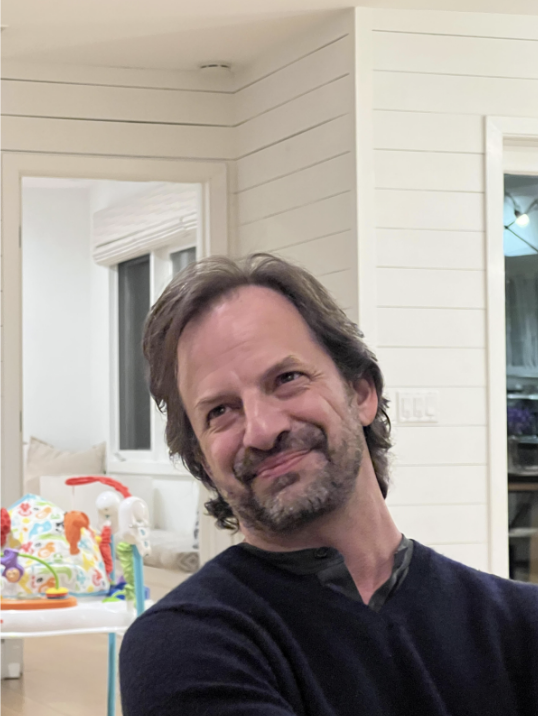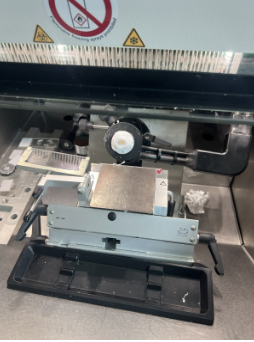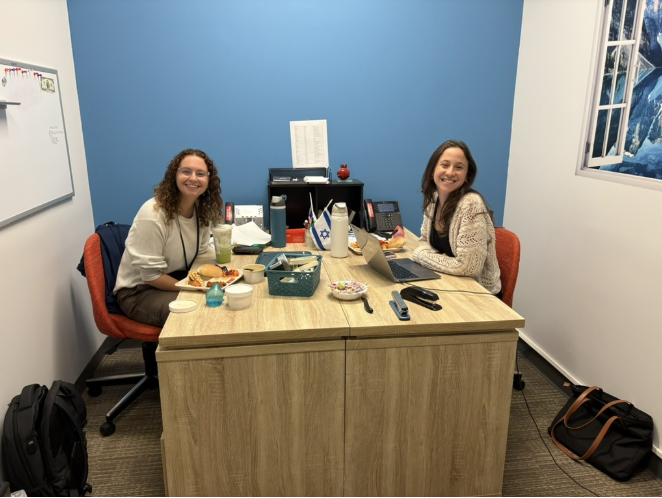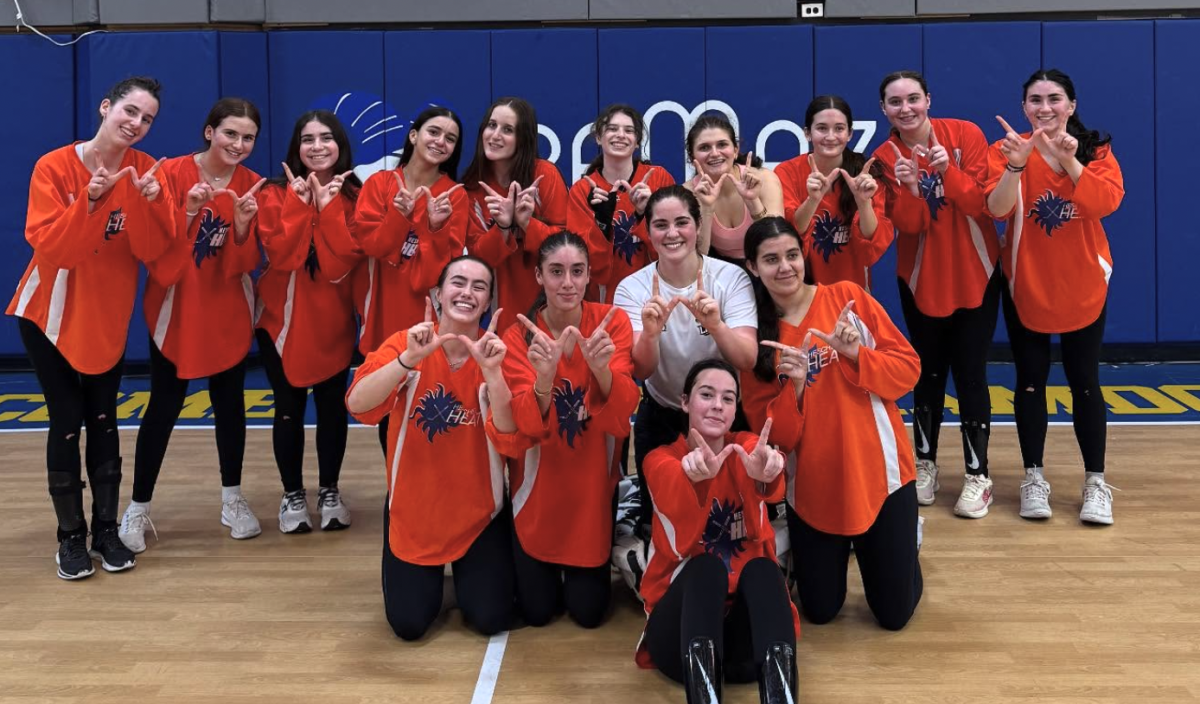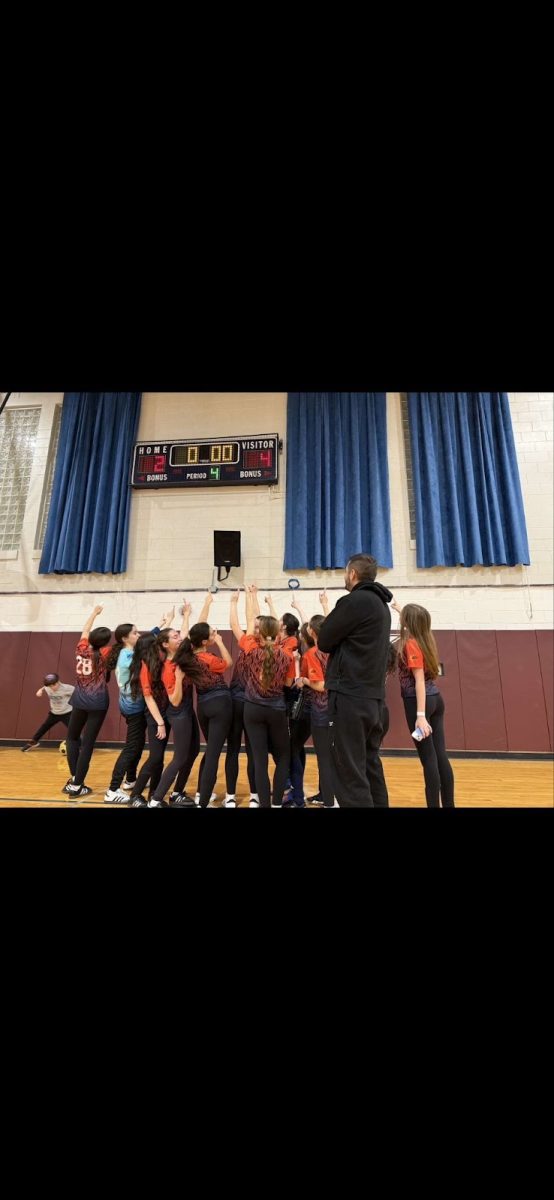Heschel High School teachers have been contemplating how they can best address the Oct. 7 massacre and the subsequent Israel-Hamas war in an educational context.
Limudei Qodesh teacher, Rabbi Ezra Frazer, discussed his effort to incorporate the war in classes where the curriculum does not necessarily connect. He said, “I have to pick whether to interrupt the class material or not to address the topic on everyone’s minds.”
Rabbi Ezra forges connections between the war and Talmudic texts in classes where obvious connections can be made. In his sophomore Talmud class, he introduced the Chanukkah unit by bringing in a source that discusses a Maccabee battle fought on Shabbat. From there, the class looked at the laws of pikuach nefesh when it comes to breaking Shabbat for battle. The source even outlines the leniencies made for those living in border towns that were most susceptible to surprise attacks.
Similarly, on Oct. 7, observant Israelis broke Shabbat in order to help their country. El Al, an Israeli airline that traditionally does not fly on Shabbat, has begun scheduling flights on Shabbat to help reservists get to Israel as quickly as possible. Soldiers in Israel who traditionally stay on their bases for Shabbat have recently been going back home to take a break from the front lines and spend time with their loved ones.
From an emotional standpoint, Rabbi Ezra spoke of teachers being “more careful in how they phrase things” because of the topic’s sensitive nature.
Rabbi Ezra also teaches a 12th-grade elective called “One State, Many Questions,” which covers many topics relevant to the war, such as the ethics behind prisoner exchanges, civilian casualties, and arms exports. Senior Avia Hogeg talked about her experience with contemporary topics in the class following the atrocities of October 7th: “Discussions of the war are prevalent in class. I believe there is a good balance. While we always go back to the war in our discussions, the readings are generally not related to the war. We have the freedom to connect the class material to the war if we want.”
History teacher Jason Perlman has also discussed the Israel-Hamas war in his senior elective, “Dual Narratives of the Modern Mideast.” In this course, students analyze Palestinian and Israeli narratives, starting with the British Mandate period through the creation of the State of Israel and subsequent conflicts in the region.
Following the Oct. 7 massacre, Perlman set aside time in his class to think about how recent events would affect the class’s efforts to reflect on each side equally. “We shared thoughts about why this could make our course even more valuable and important but also difficult,” said Perlman.
Perlman shared that substantial changes have not been made to the curriculum because the course is naturally designed to educate students about the history of the conflict. However, he made sure to spend more time on the Yom Kippur War, which was also a surprise attack and occurred almost exactly 50 years before the Oct. 7 massacre. Perlman said there are also similarities with the Lebanon war in the 1980s when Israel launched an invasion in response to attacks. Perlman has been discussing the origins of Hamas in this course, though he has focused more on the historical background in order to avoid making direct connections to the current conflict. Nonetheless, the war has come up in class.
“Students were open in communicating that in light of the trauma and strong feelings that they were experiencing, they felt it would be more difficult than it had been before to be open to the other side and feel empathy for Palestinians,” Perlman said.
Despite that, he has been impressed by how students have continued to engage intellectually in the conversation. He believes that educating students is extremely important, especially at a time when people heavily rely on social media for news rather than reliable and unbiased publications. In the future, Perlman hopes to adjust the Dual Narratives curriculum to focus on Gaza and political Islam from an earlier time period.
Perlman concluded by saying that he can “help guide students in understanding the deeper, broader background so that they have that deeper historical context” in the real world.
As the war progresses, teachers continue to integrate the topic into the curriculum to keep students updated and well-informed.

